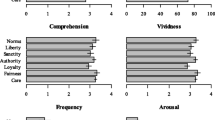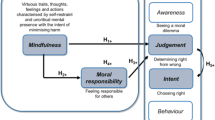Abstract
Are our actions morally good because we approve of them or are they good independently of our approval? Are we projecting moral values onto the world or do we detect values that are already there? For many these questions don’t state a real alternative but a secular variant of the Euthyphro dilemma: If our actions are good because we approve of them moral goodness appears to be arbitrary. If they are good independently of our approval, it is unclear how we come to know their moral quality and how moral knowledge can be motivating. None of these options seems attractive; the source of moral goodness unclear. Despite the growing literature on Kant’s moral epistemology and moral epistemology the question remains open what Kant’s answer to this apparent dilemma is. The Kantian view I attempt to lay out in this paper is supposed to dissolve the secular version of the Euthyphro dilemma. In responding to this dilemma we need to get clear about the source or the origin of our moral knowledge: Voluntary approval or mind-independent moral facts? Projectivism or detectivism? Construction or given? I believe that all these ways of articulating the problem turn out, on closer inspection, to be false alternatives.
Similar content being viewed by others
References
Bagnoli, C. (2012). Morality as practical knowledge. Analytic Philosophy, 53, 61–70.
Bagnoli, C. (2013). Constructivism about practical knowledge. In C. Bagnoli (Ed.), Constructivism in ethics (pp. 153–182). Cambridge: Cambridge University Press.
Bojanowski, J. (2012). Is Kant a moral realist? Kant-Yearbook, 4, 1–22.
Cohen, G. A. (1996). Reason, humanity, and the moral law. In C. Korsgaard (Ed.), The sources of normativity (pp. 167–188). Cambridge: Harvard University Press.
Engstrom, S. (2009). The form of practical knowledge: A study of the categorical imperative. Cambridge: Harvard University Press.
Engstrom, S. (2013). Constructivism and practical knowledge. In C. Bagnoli (Ed.), Constructivism in ethics (pp. 153–182). Cambridge: Cambridge University Press.
Enoch, D. (2006). Agency, shmagency: why normativity won't come from what is constitutive of agency. Philosophical Review, 115, 169–198.
Guyer, P. (2000). Morality of law and morality of freedom. in: Kant on Freedom, Law, and Happiness, Cambridge: Cambridge University Press, 129–71.
Hussain, N. J. Z., & Shah, N. (2006). Misunderstanding metaethics: Korsgaard’s rejection of realism. Oxford Studies in Metaethics 1 (pp. 265–94). Oxford: Oxford University Press.
Korsgaard, C. M. (2008). The constitution of agency. Oxford: Oxford University Press.
Korsgaard, C. M., et al. (1996). The sources of normativity. Cambridge: Harvard University Press.
Langton, R. (2007). Objective and unconditioned value. Philosophical Review, 116, 157–185.
Nagel, T. (1996). Universality and the reflective self. In C. Korsgaard (Ed.), The sources of normativity (pp. 200–209). Cambridge: Harvard University Press.
Rawls, J. (1980). Kantian constructivism in moral theory. Journal of Philosophy, 77, 515–72.
Schönecker, D. (1999). Kant: Grundlegung III. Die Deduktion des kategorischen Imperativs. Freiburg: Karl Alber.
Stern, R. (2012). Understanding moral obligation: Kant, Hegel, Kierkegaard. Cambridge: Cambridge University Press.
Stratton-Lake, P. (2000). Kant, duty, and moral worth. London: Routledge.
Street, S. (2008). Constructivism about reasons. Oxford Studies in Metaethics, 3, 208–245.
Timmons, M. (1998). Decision procedures, moral criteria, and the problem of relevant descriptions in Kant’s ethics. In B. S. Byrd, J. Hruschka, & J. C. Joerdan (Eds.), Jahrbuch für Recht Und Ethik (pp. 389–417). Berlin: Duncker & Humblot.
Wood, A. (1999). Kant’s ethical thought. New York: Cambridge University Press.
Wood, A. (2008). Kantian ethics. Cambridge: Cambridge University Press.
Acknowledgements
I am very much indebted to Stefano Bacin, Carla Bagnoli, Patrick Kain, Pauline Kleingeld, Nico Naeve, Lara Ostaric, Fabienne Peter, Fred Rauscher, Joe Saunders, Dieter Schönecker, Irina Schumski, Oliver Sensen, Melissa Zinkin, and two anonymous referees for their comments on an earlier version of this paper. My work on this article was funded by the Netherlands Organization of Scientific Research (NWO).
Author information
Authors and Affiliations
Corresponding author
Rights and permissions
About this article
Cite this article
Bojanowski, J. Kant’s Solution to the Euthyphro Dilemma. Philosophia 44, 1209–1228 (2016). https://doi.org/10.1007/s11406-016-9747-2
Received:
Accepted:
Published:
Issue Date:
DOI: https://doi.org/10.1007/s11406-016-9747-2




